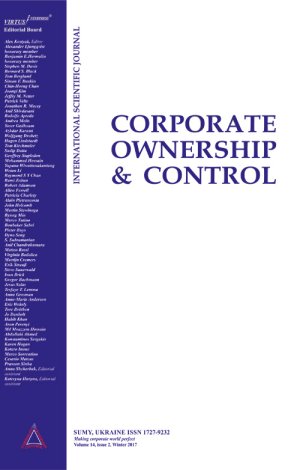
-
 Journal menu
Journal menu

- General information
- Editorial Board and External Reviewers
- Journal Policies
- Publication Ethics and Malpractice Statement
- Instructions for authors
- Paper reviewing
- Article processing charge
- Feedback from stakeholders
- Journal’s Open Access statement
- Order hard copies of the journal
- 50 most cited papers in the journal
THE VALUE RELEVANCE OF UNREALIZED GAINS AND LOSSES AROUND THE FINANCIAL CREDIT CRISIS: EVIDENCE FROM THE UK
Download This ArticleAbstract
This paper examines the usefulness of the unrealized gains and losses on foreign currency exchange and marketable securities, using a sample of UK non-financial FTSE 350 around the recent financial credit crisis. A number of findings are reported by the current study. First, study finds that the unrealized gains and losses on foreign currency exchange and marketable securities matter when making investment decisions and can explain changes in firms’ market value, however, this relationship becomes more negative post-the crisis period indicating that investors attach some value for such information. Second, the study concludes that investors underestimate the value of firms report unrealized gains and losses in the post-crisis period, confirming the view that these items are considered to be one of the major drivers of the credit crisis. The present articles provides a great deal of implication for national (UK Accounting Standard Board) and international (IASB) accounting regulators about the impact of using unrealized gains and losses of foreign currency exchange and marketable securities.
Keywords: Value Relevance, Unrealized Gains and Losses, Recent Credit Crisis
How to cite this paper: Alhadab, M., & Tahat, Y. (2016). The value relevance of unrealized gains and losses around the financial credit crisis: Evidence from the UK. Corporate Ownership & Control, 14(1-2), 351-359. https://doi.org/10.22495/cocv14i1c2p7

















